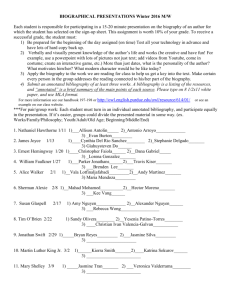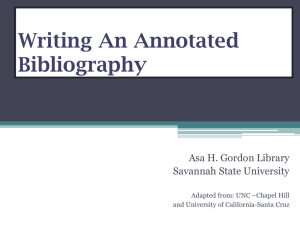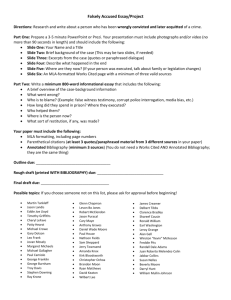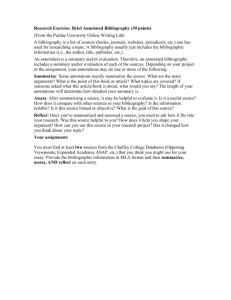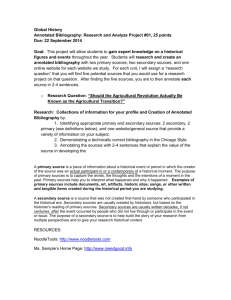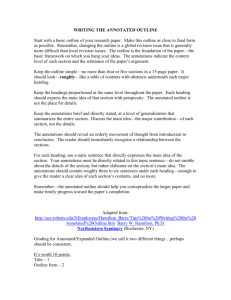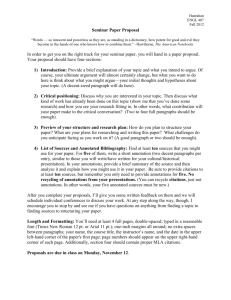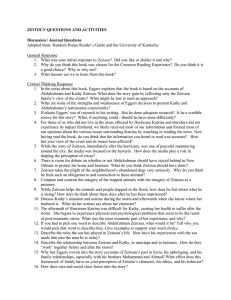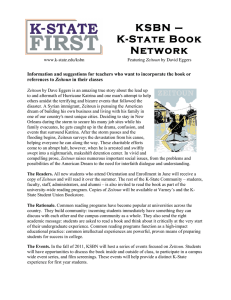Annotated Bibliography Guidelines Survey of Literature
advertisement
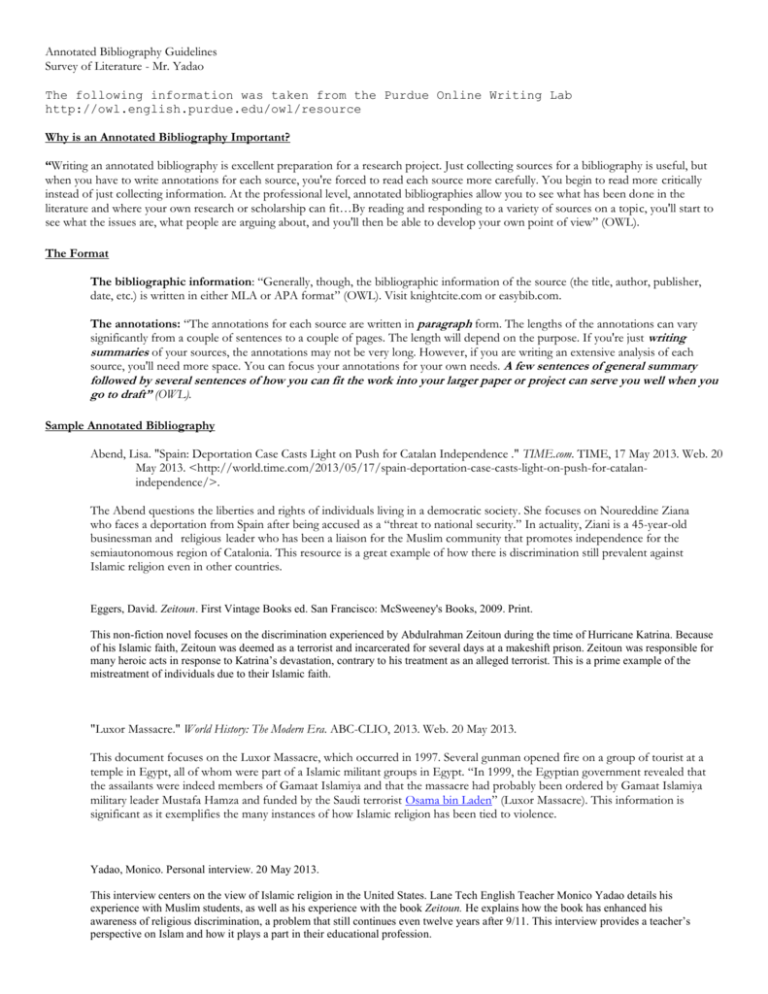
Annotated Bibliography Guidelines Survey of Literature - Mr. Yadao The following information was taken from the Purdue Online Writing Lab http://owl.english.purdue.edu/owl/resource Why is an Annotated Bibliography Important? “Writing an annotated bibliography is excellent preparation for a research project. Just collecting sources for a bibliography is useful, but when you have to write annotations for each source, you're forced to read each source more carefully. You begin to read more critically instead of just collecting information. At the professional level, annotated bibliographies allow you to see what has been done in the literature and where your own research or scholarship can fit…By reading and responding to a variety of sources on a topic, you'll start to see what the issues are, what people are arguing about, and you'll then be able to develop your own point of view” (OWL). The Format The bibliographic information: “Generally, though, the bibliographic information of the source (the title, author, publisher, date, etc.) is written in either MLA or APA format” (OWL). Visit knightcite.com or easybib.com. The annotations: “The annotations for each source are written in paragraph form. The lengths of the annotations can vary significantly from a couple of sentences to a couple of pages. The length will depend on the purpose. If you're just writing summaries of your sources, the annotations may not be very long. However, if you are writing an extensive analysis of each source, you'll need more space. You can focus your annotations for your own needs. A few sentences of general summary followed by several sentences of how you can fit the work into your larger paper or project can serve you well when you go to draft” (OWL). Sample Annotated Bibliography Abend, Lisa. "Spain: Deportation Case Casts Light on Push for Catalan Independence ." TIME.com. TIME, 17 May 2013. Web. 20 May 2013. <http://world.time.com/2013/05/17/spain-deportation-case-casts-light-on-push-for-catalanindependence/>. The Abend questions the liberties and rights of individuals living in a democratic society. She focuses on Noureddine Ziana who faces a deportation from Spain after being accused as a “threat to national security.” In actuality, Ziani is a 45-year-old businessman and religious leader who has been a liaison for the Muslim community that promotes independence for the semiautonomous region of Catalonia. This resource is a great example of how there is discrimination still prevalent against Islamic religion even in other countries. Eggers, David. Zeitoun. First Vintage Books ed. San Francisco: McSweeney's Books, 2009. Print. This non-fiction novel focuses on the discrimination experienced by Abdulrahman Zeitoun during the time of Hurricane Katrina. Because of his Islamic faith, Zeitoun was deemed as a terrorist and incarcerated for several days at a makeshift prison. Zeitoun was responsible for many heroic acts in response to Katrina’s devastation, contrary to his treatment as an alleged terrorist. This is a prime example of the mistreatment of individuals due to their Islamic faith. "Luxor Massacre." World History: The Modern Era. ABC-CLIO, 2013. Web. 20 May 2013. This document focuses on the Luxor Massacre, which occurred in 1997. Several gunman opened fire on a group of tourist at a temple in Egypt, all of whom were part of a Islamic militant groups in Egypt. “In 1999, the Egyptian government revealed that the assailants were indeed members of Gamaat Islamiya and that the massacre had probably been ordered by Gamaat Islamiya military leader Mustafa Hamza and funded by the Saudi terrorist Osama bin Laden” (Luxor Massacre). This information is significant as it exemplifies the many instances of how Islamic religion has been tied to violence. Yadao, Monico. Personal interview. 20 May 2013. This interview centers on the view of Islamic religion in the United States. Lane Tech English Teacher Monico Yadao details his experience with Muslim students, as well as his experience with the book Zeitoun. He explains how the book has enhanced his awareness of religious discrimination, a problem that still continues even twelve years after 9/11. This interview provides a teacher’s perspective on Islam and how it plays a part in their educational profession.
